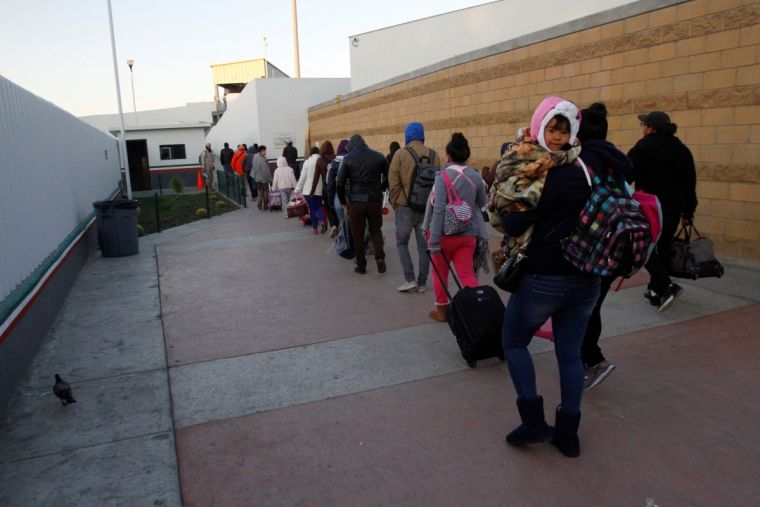Churches Join Resistance Against Trump's Deportation Pledge
Hundreds of churches across the US are preparing to hide illegal immigrants if Donald Trump goes ahead with his campaign promise to deport them.
They will use the Old Testament principle of "sanctuary" to prevent officials from deporting migrants. Dozens of synagogues are also preparing to join the resistance, according to the Guardian, as places of worship are "sensitive locations" under US regulations.

Guidelines from the Immigration and Customs Enforcement (ICE) and Customs and Border Protection (CBP) state: "Enforcement actions at or focused on sensitive locations such as schools, places of worship, and hospitals should generally be avoided."
Church World Service, a humanitarian charity, estimates 400 churches around the US will hide those at risk from deportation.
The pledge comes as around two dozen cities including New York, Chicago, Seattle, Philadelphia and Los Angeles, have announced they will refuse to comply with immigration orders that lead to deportation.
The cities' mayors have declared them "sanctuary cities" and in retaliation Trump has announced he will block funding to such cities.
"What we are going to do is get the people that are criminal and have criminal records, gang members, drug dealers, we have a lot of these people, probably two million, it could even be three million, we are getting them out of the country or we are going to incarcerate. But we're getting them out of our country, they're here illegally," Trump told 60 Minutes.
Several Anglican bishops have also vowed to resist rather than be reconciled to Trump's administration.
The Bishops of Virginia told Latino voters: "We stand with you not only symbolically, but will be there to stand with you literally if and when the time comes."
President of the House of Deputies in the Episcopal Church, the Revd Gay Clark Jennings, suggested that it may be "pastorally inappropriate for the Church even to suggest it [reconciliation] to people who now have legitimate reasons to be afraid".
"Too often the Church preaches reconciliation when what we really want is to avoid unpleasantness, or get approval from worldly powers and principalities," she wrote in a comment for the Religion News Service.
"President-elect Trump's rhetoric and his behavior indicate that he does not regard significant numbers of other Americans as his equal, or even as fully human."











